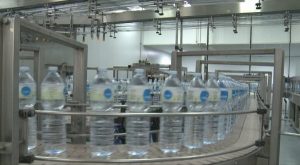A few years ago an outbreak linked to a Denver homeless shelter made it into the barfblog new and notable category. Forty folks who depended on the emergency food were affected by violent foodborne illness symptoms after eating donated turkey. Fourteen ambulances showed up and took those most affected to area hospitals.
Earlier this year while speaking at the Rocky Mountain Food Safety Conference I met one of the EHS folks who conducted the investigation and temperature abuse of the turkey after cooking was identified as the likely contributing factor.
The very folks who need food the most were betrayed by the system they trust.
I can’t imagine how hard it is to be homeless or not have enough money to feed my family. Focusing on safe, nutritious food is moot if the money isn’t available to buy groceries. Or if there’s no home to take them too.
Volunteering as a food handler at a food bank, mission, shelter or soup kitchen and having a good heart and intentions doesn’t automatically lead to safe meals. An understanding of risks and having systems how to reduce them may.
Yesterday, a recall (we’re not recall net, others can do that) popped up as new and notable. The Idaho Food Bank recalled a few items that had been distributed to pantries community meal sites and senior centers after someone reviewing cooler documentation saw that stuff was out of temp.
The Idaho Foodbank is recalling approximately 27,000 pounds of Coconut Beverage, Broccoli Cheddar Soup, Eggs, and Cheese Product.
These products are being recalled because they were not continuously maintained or stored at the required temperature due to a malfunction in the cooler. This could result in contamination by spoilage organisms or pathogens, which could lead to life-threatening illness if consumed. The Idaho Foodbank discovered the problem after reviewing cooler temperature records during high heat.
Affected Products were distributed in Southwest and North-Central Idaho
The Idaho Foodbank is committed to consumer safety and takes all product quality concerns very seriously. This recall affects less than 2% of the 1.5 million pounds of food IFB distributes statewide each month. We are recalling the products out of an abundance of caution, and are instructing consumers who received them not to eat these products and to immediately dispose of them.
Don’t know what temperature the coolers got to, or for how long, but that broccoli cheddar soup stuff is the type of stuff that could lead to botulism if temperature abused for a long time.
Ashley Chaifetz did a bunch of great work in this area a few years ago:
Evaluating North Carolina Food Pantry Food Safety–Related Operating Procedures
Ashley Chaifetz, University of North Carolina at Chapel Hill; Benjamin Chapman, North Carolina State University
Journal of Food Protection
Vol. 78, No. 11, 2015, Pages 2033–2042
DOI: 10.4315/0362-028X.JFP-15-084
Abstract: Almost one in seven American households were food insecure in 2012, experiencing difficulty in providing enough food for all their members due to a lack of resources. Food pantries assist a food-insecure population through emergency food provision, but there is a paucity of information on the food safety–related operating procedures that pantries use. Food pantries operate in a variable regulatory landscape; in some jurisdictions, they are treated equivalent to restaurants, while in others, they operate outside of inspection regimes. By using a mixed methods approach to catalog the standard operating procedures related to food in 105 food pantries from 12 North Carolina counties, we evaluated their potential impact on food safety. Data collected through interviews with pantry managers were supplemented with observed food safety practices scored against a modified version of the North Carolina Food Establishment Inspection Report. Pantries partnered with organized food bank networks were compared with those that operated independently. In this exploratory research, additional comparisons were examined for pantries in metropolitan areas versus nonmetropolitan areas and pantries with managers who had received food safety training versus managers who had not. The results provide a snapshot of how North Carolina food pantries operate and document risk mitigation strategies for foodborne illness for the vulnerable populations they serve. Data analysis reveals gaps in food safety knowledge and practice, indicating that pantries would benefit from more effective food safety training, especially focusing on formalizing risk management strategies. In addition, new tools, procedures, or policy interventions might improve information actualization by food pantry personnel.
 During April 11–25, 2016, a total of 4,136 cases of gastroenteritis were reported by the Public Health Agency of Catalonia (ASPCAT; Figure, panel A). A case-patient was defined as an exposed person who had vomiting or diarrhea (3 or more loose stools within 24 hours) and >2 of the following: nausea, abdominal pain, or fever (≥37.8°C). Six patients required hospitalization.
During April 11–25, 2016, a total of 4,136 cases of gastroenteritis were reported by the Public Health Agency of Catalonia (ASPCAT; Figure, panel A). A case-patient was defined as an exposed person who had vomiting or diarrhea (3 or more loose stools within 24 hours) and >2 of the following: nausea, abdominal pain, or fever (≥37.8°C). Six patients required hospitalization.








